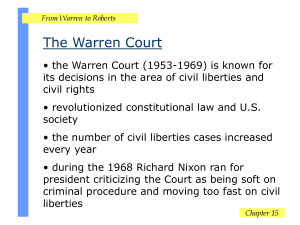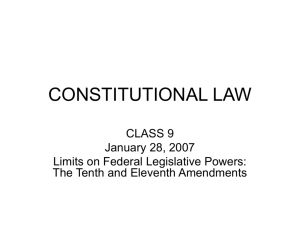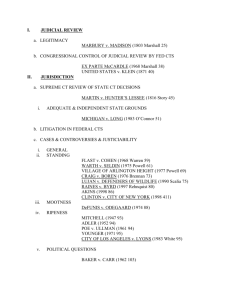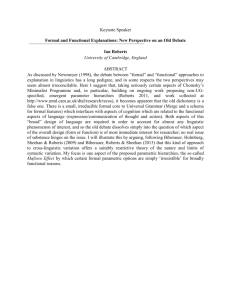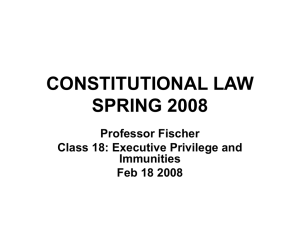Chief Justice John Roberts and the Future of the U.S. Supreme Court
advertisement
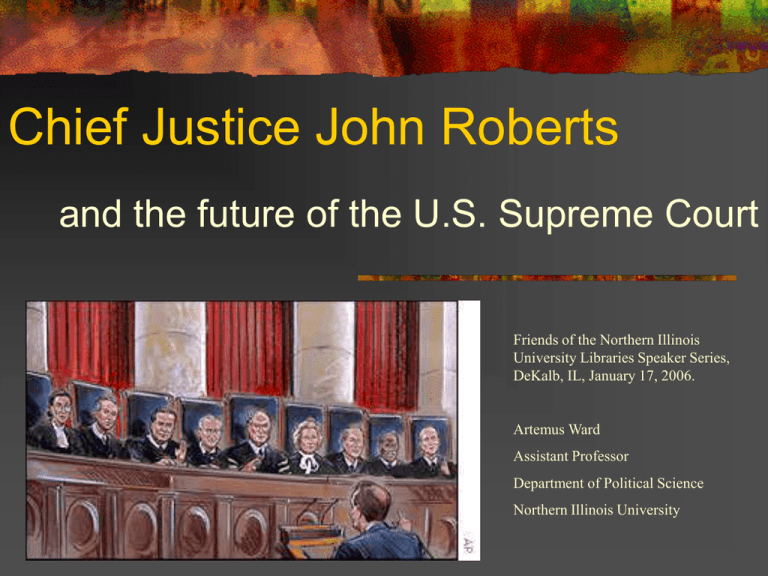
Chief Justice John Roberts and the future of the U.S. Supreme Court Friends of the Northern Illinois University Libraries Speaker Series, DeKalb, IL, January 17, 2006. Artemus Ward Assistant Professor Department of Political Science Northern Illinois University Ideology and the Rehnquist Court (1986-2005) Liberal Moderate Conservative L --------------------------------------I-------------------------------------- R Brennan (D) Stevens (R) Marshall (D) Souter (R) Blackmun (R) Ginsburg (D) Breyer (D) O’Connor (R) Rehnquist (R) Kennedy(R) Scalia (R) Thomas (R) The Politics of Departure: The O’Connor and Rehnquist Debacle Rehnquist knew he was dying but failed to communicate with O’Connor about staying on the bench. When he failed to retire at the end of the term in June, she retired. Why? The rule of 8: The justices work to ensure there is only one vacancy at a time (particularly over the summer) to keep the Court as an institution as strong as possible. The Politics of Departure: The O’Connor and Rehnquist Debacle Bush nominated Roberts to replace O’Connor, fully expecting to elevate him to Chief Justice the following year or next when Rehnquist would step down. He would then fill Roberts seat (2 for 1). Rehnquist’s death hastened the Bush plan, Roberts was nominated for Chief and O’Connor was forced to remain on the Court. John Roberts, Jr.: The Heir Apparent Editor, Harvard Law Review Law Clerk to Justice Rehnquist Legal positions in Regan and Bush I Administrations Private Practice at Hogan & Hartson. Experienced Supreme Court Advocate Bush II appointed him Judge, U.S. Court of Appeals, DC Circuit (20032005). Chief Justice John Roberts, Jr. Age: 50—youngest Chief since John Marshall, age 45, 1801. First new member of the Court in over 11 years—longest stretch since 1823! Lower court opinions suggest a conservative judicial minimalist, deferential to executive authority. Harriet Miers: The Crony Selected for two reasons: Gender and deferential to executive authority. Failed because organized evangelicals saw her as at best a judicial moderate. She was unable to demonstrate constitutional acumen and strong convictions. Nomination was hurting an increasingly weakened Bush Administration. Samuel Alito, Jr.: Old No.3 Club Editor, Yale Law Journal. Court of Appeals Law Clerk. Legal positions in Reagan Administration. Experienced Supreme Court Advocate as Asst. Solicitor General. Bush I appointed him Judge, U.S. Court of Appeals (1990-present). Justice Alito Age 54 Like Justice Kennedy and former Justice Blackmun, Alito is the latest member of the “Old No.3 Club.” Lower Court decisions suggest a solid conservative. Ideology and the Roberts Court (2005—) Liberal Moderate Conservative L --------------------------------------I-------------------------------------- R Brennan (D) Stevens (R) Marshall (D) Souter (R) Blackmun (R) Ginsburg (D) Breyer (D) Roberts (R) Alito (R) Kennedy(R) Scalia (R) Thomas (R) Conclusion The 2008 Presidential election will be decisive for the future of the Roberts Court with Justice Stevens (4/20/20) and possibly Justice Ginsburg (3/15/33) departing before the 2012 election.
